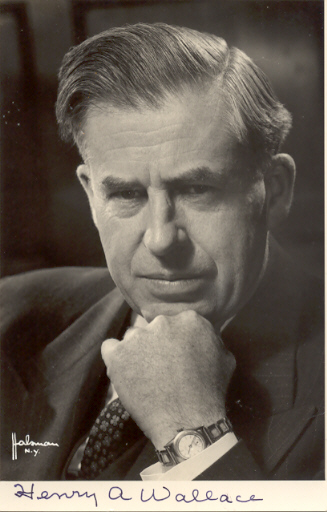A radio speech delivered by Vice-President Henry A. Wallace on June 21, 1940.
The Strength and Quietness of Grass
Uppermost in all our minds these days are tragedies and alarms which we cannot escape. But it is natural that we should think of other things in relation to them; so even when I think about the place of grass in American agriculture I find myself thinking in terms of the world situation and our own future.
I have always had a great affection for grass. It seems to stand for quietness and strength. I believe that the quietness and strength of grass should be, must be, permanently a part of our agriculture if this nation is to have the strength it will need in the future. A countryside shorn and stripped of thick, green grass, it seems to me, is weakened just as Sampson was. An agriculture without grass loses a primary source of strength.
It is only recognizing the truth to say that in the past we have been lured by the Delilah of profits to destroy grass covering recklessly. We plowed up millions of acres of grassland; we overgrazed millions of other acres. We thought too much, and we still think too much, in terms of plows and cultivators. My guess is that even today not one farmer in ten uses good pasture methods. Grass we have. Pastures we have. But our grass is usually on land that we figure is no good for anything else; and after we put the grass in, we neglect it.
Many people blame science for our surplus of farm products. They say that science taught us how to grow two blades of grass where one grew before. I think the trouble is that is exactly what science did not teach us. Instead it taught us how to grow something else where two blades of grass grew before. Now we are beginning to see the weaknesses of an agriculture stripped of grass. More and more we are turning in thought and practice toward an agriculture in which grass will act as the great balance wheel and stabilizer to prevent gluts of other crops—to save soil from destruction—to build up a reserve of nutrients and moisture in the soil, ready for any future emergency, to create a more prosperous livestock industry, and finally to contribute to the health of our people through better nutrition.





No comments:
Post a Comment